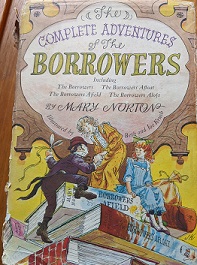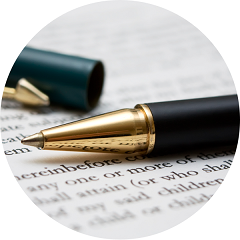The tales we tell ourselves about the evil in the world.

On Wednesday of last week, at five in the morning, our 10-year-old son quickly padded down the hall from his bedroom to ours and climbed into bed between me and my wife.
She and I were already awake, quietly talking about the election.
“Who won?” he asked.
We told him Donald Trump had won. He knew we’d voted for Kamala Harris, and he knew the reasons why. And, that morning, we talked a little about the election results and what they might mean. And I could see that he was growing worried.
“But it’s going to be okay,” we lied. “You don’t have anything to worry about.”
Writers lie to protect our stories. To make sure an important message is heard, we often only tell part of the truth, because the entire truth is unpalatable. For example, I remember once telling a book club that, as graphic and upsetting as my novel The Unrepentant was, I’d still held a lot of my research back. When they asked what I hadn’t written about, given that my book dealt with the realities of the sex-trafficking industry, I told them that the victims I’d researched were often children.
But I’d chosen not to write about the pipelines that deliver scared children into the arms of naked men. At the time, I couldn’t tell those stories. I also heeded the advice from the publishing industry and readers: Don’t hurt children or dogs.
I often wonder if my decision was a mistake.
“Most of the stuff that a president does,” my wife lied to our son, “isn’t something people really notice.”
There was a time, in my teens and 20s, when it seemed that was true, that the actions of the two major political parties were identical, and it didn’t really matter much whom you voted for. I don’t think that was a political conclusion so much as youthful naivete.
But our world has expanded, and no longer are we limited to three networks and a handful of newspapers generally telling slight variations of the same national story. Now, we get information (sometimes occasionally reliable) from people we’ve never met and places we’ve never been. Our data is limitless. During the Gulf War, we admired black-and-white videos of bombs dropping.
Now we see the dead children.
This is a good thing, I suppose, to see the effects of what we’ve done. Perhaps witnessing cruelty will eventually end it.
“We’ll always keep you safe,” I told our son. “No matter what happens.”
But I only feel he’s safe in moments like that, lying between us, when someone who wants to hurt him would literally have to kill us. But those moments are rare, and a Trump presidency means that my son, mixed of Panamanian and Vietnamese genes, is a target for bigots (more than usual).
And Trump’s election means that bigotry is going to be celebrated, never condemned or punished. It’s already started — from the triumphant signs at a Texas university stating, “Homo sex is a sin” and “Women are property,” to the texts received by Black people informing them that they are now required to pick cotton, to the tweet by an influential male Republican commentator telling women, “Your body, our choice” — in the wake of last Tuesday’s result.
Like Charlottesville in 2017, Trump will never condemn this hate but instead blame those who fight against it. It will be our fault, he will imply. Bigots, of course, rarely see themselves as bigoted and are often offended to be called so. They simply believe they are honest.
No one truly believes they are evil.
“There are more good people than bad in the world,” I said to my son, “and they stop the bad people.”
But they didn’t in this election, and they don’t always, and the long arc of justice is so long that, like the horizon, the ending seems a mirage. As a writer, I try to honestly understand the motivations of those I disagree with, often to a fault. This is as we were taught to do.
Prior to the social awakenings of #MeToo and Black Lives Matter, I accepted the casual racism of jokes and stereotypes, ascribed my hurt feelings to my own weakness, my inability to accept insults as my own failure to accept the lofty principles of freedom of speech. Once that changed, I discovered (shamefully) how much abuse I’d tolerated over the years, the times friends or family members expected me to understand their bigotry, to chalk up their hate to misunderstandings or jokes or locker-room talk. Because to do otherwise would mean those people would have to accept what they’d done. It was easier to break me than it was to break that thing in themselves.
With Trump’s election, that thing in themselves, that little knot of hate, is glorified and celebrated. They feel it was proven right.
The longer we spoke to our son, the more my wife and I felt the weight of our lies.
And I guess we realized, in one of those moments where parents understand something at the same time, that we weren’t helping him.
“Here’s the truth,” I said. “It’s not going to be easy. But we’ll always love you, and the three of us will always have each other. The important thing is love. If you base what you do off that, off of someone being equal no matter who they are or how they’re different from you, you’ll always find love. That’s the one thing I can promise you, because it’s always been true for me, and it’s the only thing we can control. We have faith and we have hope and we have love. And when faith and hope depart from us, as they do, only love can bring them back. And so the greatest of these is love.”
He was getting sleepy, and I’m not sure he heard us, as we lay on either side of him, as the world began to burn, as my wife and I talked about the importance of love.
E.A. Aymar is the author, most recently, of When She Left: A Thriller.

